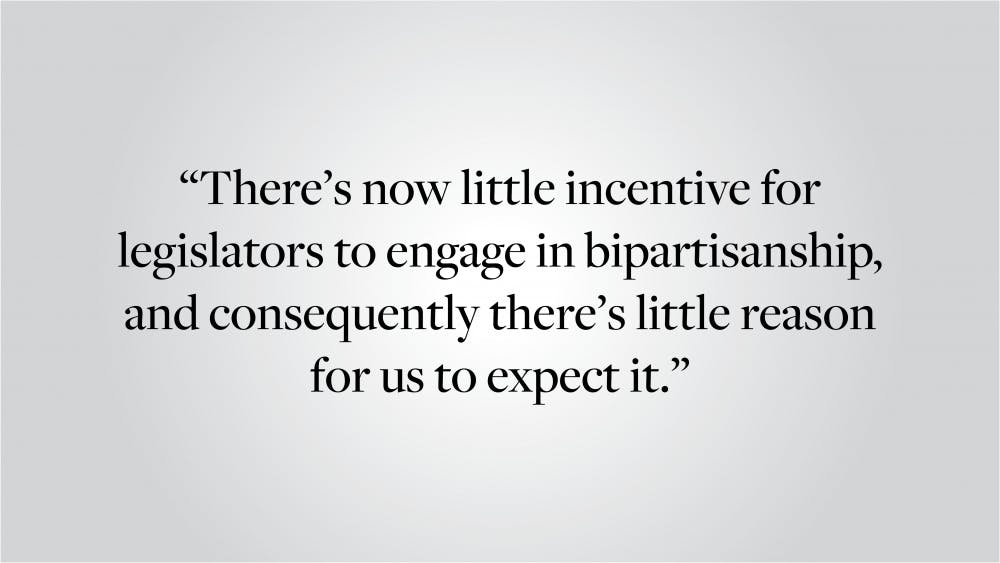Joe Biden campaigned on bipartisanship, on “the spirit of being able to work with one another.” To be frank, that is hardly what we’ve gotten from his presidency thus far, one defined by partisan legislative maneuvering. Instead, Biden has redefined what “bipartisanship” means. For the Biden team, a bipartisan policy is one supported by both Democratic and Republican voters, not Democratic and Republican members of Congress. Screw congressional Republicans, says the Biden team, because Republican voters are the ones whose support matters.
This is certainly not what anybody thought Biden meant while he was campaigning. When Biden promised “between four and eight Republican senators who are going to be willing to move on things where there’s bipartisan consensus,” it was clear that he meant old-fashioned and increasingly rare legislative compromise and bipartisan support for bills ― the traditional definition of bipartisanship. In light of this, Biden’s reimagination of the term “bipartisanship” is, I must admit, not exactly what he promised while campaigning. (Although in the Biden administration’s defense, on infrastructure they are, by most accounts, sincerely attempting some of the more traditional bipartisanship promised by his campaign). Still, I’m honestly not disappointed in this turn. Biden’s version of bipartisanship in practice might be the best we can realistically hope for.
The polarized, oppositional and – crucially – highly competitive atmosphere of today’s politics allows for little more than obstructionist partisan politics. Political scientist Frances E. Lee argues in her book “Insecure Majorities: Congress and the Perpetual Campaign” that there is no longer any real reason for the opposition party to collaborate with the party in power due to the competitiveness of modern elections. In earlier periods of American history with stable congressional majorities, the minority party could only wield influence when it engaged with the majority in bipartisan ways ― the type of cooperation that Biden promised on the campaign trail. If Ronald Reagan and other Republicans wanted to overhaul the tax system, they had to work with the deeply-entrenched Democratic House majority, 254 seats strong in the 1985-1987 99th Congress, which wasn’t going anywhere anytime soon. That, of course, is exactly what they did, compromising and amending various bills until the Tax Reform Act of 1986 passed the House 292-136 with strong bipartisan majorities.
Today that dynamic doesn’t hold. In fact, now that any single election could conceivably change control of Congress there is a clear disincentive for the bipartisanship Biden championed on the campaign trail. Instead, obstructionism is a more politically advantageous strategy for congressional minorities, returning a minority party to power by sabotaging the ruling majority’s image. When a minority fully commits to obstructionism, the majority will either seem ineffectual as a result of gridlock, or they will seem radically partisan, given the lack of congressional cooperation. This tactic was heavily used by congressional Republicans during the Obama years. They did their best to prevent any Republican votes from going to any Democratic initiative, turning the GOP into what many pundits began calling “the Party of No.” Then-Senate Majority Leader Mitch McConnell didn’t feel a need to play coy with his reasoning: In 2010, he said that “the single most important thing (Republicans) want to achieve is for President Obama to be a one-term president.” Republicans didn’t quite get what they wished for, but they were rewarded for their intransigence with what Obama pronounced a “shellacking” of the Democratic Party in the 2010 midterms, returning the GOP to power in the House. They would manage the same thing in the Senate four years later, cementing the viability of obstructionism. The tactic a proven success, why wouldn’t they use it again now under Biden?
Today, it is also not clear whether a perennial minority in Congress would even have any shared interests with the majority, given the increasing divergence in the policy preferences of the two major parties. If, say, today’s Republicans were a pseudo-permanent minority party, would many more of them really be willing to sign on to Democratic initiatives, even if it was their only chance to wield influence? Large numbers of congressional Republicans have signed Grover Norquist’s no-new-taxes Taxpayer Protection Pledge, markedly circumscribing their potential support for any Democratic policies, many of which will inevitably entail tax hikes. Plenty of Republicans also deny the very existence of some of the issues that Democratic legislative priorities aim to address, like systemic racism or climate change. And some Republicans in Congress today are simply geared towards messaging not legislating anyway.
All this combines to mean that there’s now little incentive for legislators to engage in bipartisanship, and consequently there’s little reason for us to expect it. The best we can hope for are politicians like Biden pursuing policies that both their own supporters and some voters from the opposite party support, but paying less attention to how many elected officials from the opposite party do. Plus, as Ezra Klein recently argued in the New York Times, nothing about bipartisan legislation is inherently better than partisan legislation. What makes good legislation is that the legislation is good, not that some number of politicians decided that supporting it was in their political interests. Realistically, it’s probably time for all of us to join Biden in putting the old definition of bipartisanship to rest.
Augustus Bayard ’24 can be reached at augustus_bayard@brown.edu. Please send responses to this opinion to letters@browndailyherald.com and op-eds to opinions@browndailyherald.com.
Augustus Bayard was the senior editor of opinions for The Brown Daily Herald's 133rd Editorial Board.





